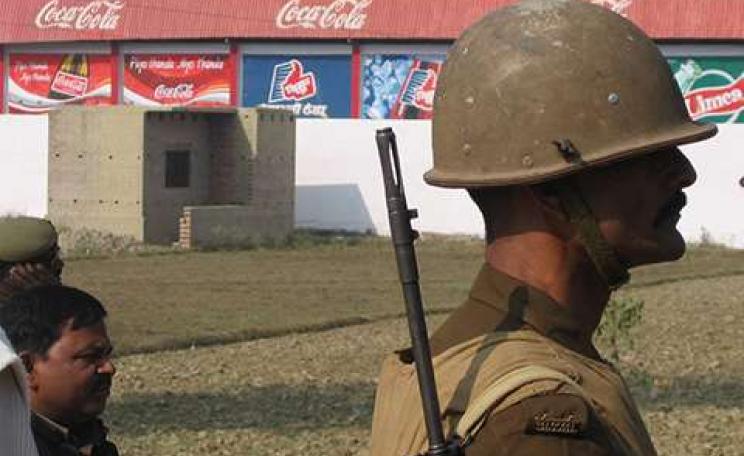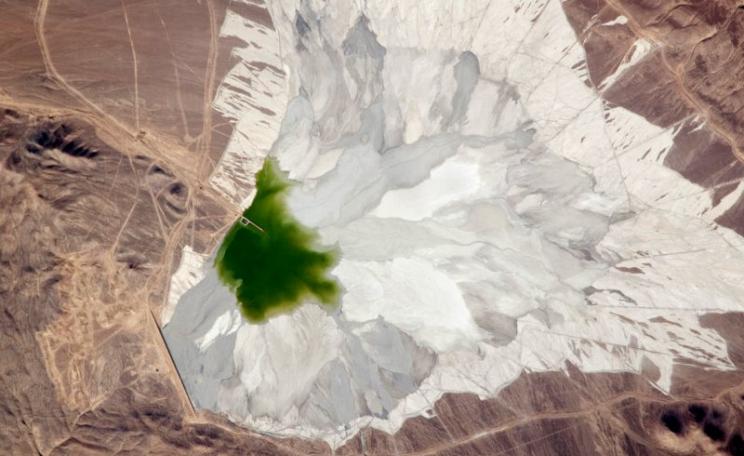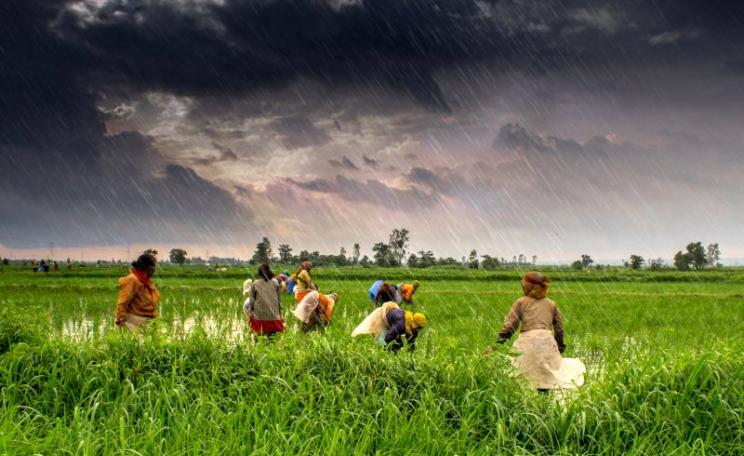Coca-Cola failed to placate strong reservations based on the company's dismal track record elsewhere in India on water management, pollution prevention and community relations.
Bowing to public outrage, the state government of Tamil Nadu in south India has cancelled plans for a new $80 million / Rs. 500 crore Coca-Cola bottling plant in Perundurai in Erode district.
In a letter dated April 20, 2015, the State Industries Promotion Corporation of Tamil Nadu (SIPCOT), a government agency, informed Hindustan Coca-Cola Beverages Private Limited (HCCBPL) that the land previously allotted for a bottling plant had been canceled.
The cancellation came as the result of a powerful local campaign led by farmers and political parties who opposed the Coca-Cola plant because it would worsen the already existing water shortages in the area, and bring more pollution into the area.
Residents in Perundurai cited the dismal track record of Coca-Cola in India - creating water shortages across the country and polluting with toxic chemicals - as their main reasons for their opposition.
Big demonstration planned
"This is a great victory for the people of Perundurai", said V. M. Kandasamy, chairperson of Perundurai Environment Protection Trust. "We put all our efforts to stop Coca-Cola and we have succeeded!"
Coca-Cola had claimed that it would not draw groundwater and obtain water from the river Cauvery, and that it would not pollute - but failed to placate the community's strong reservations based on the company's dismal track record elsewhere in India on water management, pollution prevention and community relations.
The opposition to Coca-Cola was widespread, and a bandh (strike) organized on 5th March this year asking shops and businesses to shut down to show opposition to Coca-Cola was a major success.
A large protest was slated for April 30, 2015 and organizers expected more than 10,000 to attend the rally against Coca-Cola. The police had denied permission for the protest but the organizers had just succeeded in getting the High Court to rule in their favor on April 9, 2015.
Discussions are underway in Perundurai on whether the protests will still take place on April 30.
The last in a long line of failures
The rejection of its proposed bottling plant in Perundurai is a major setback for Coca-Cola in India as it tries to expand aggressively to compensate for rapidly declining sales in the industrialized countries.
In August 2014, Coca-Cola was forced to abandon a fully built $25 million bottling plant in Mehdiganj in Uttar Pradesh because the government rejected its application as a result of community pressure and legal actions.
Coca-Cola failed to placate strong reservations based on the company's dismal track record elsewhere in India on water management, pollution prevention and community relations.
In April 2014, another proposed Coca-Cola bottling plant - in Charba in Uttarkhand state - was rejected due to community opposition.
The company also faces significant opposition in various parts of India where it has located its bottling plant in water-stressed areas, and challenges to Coca-Cola's bottling operations are expected to grow as water conditions deteriorate across the country.
Another Coca-Cola bottling plant, located about 150 kms west of Perundurai in a village called Plachimada in the state of Kerala, was closed by the state government authorities in 2004 because of rampant toxic pollution.
"We were made aware of the dangers of Coca-Cola through the campaign in Plachimada where the company had contaminated the land and water, and depleted the groundwater", said C. Velusamy, a key organizer with Perundurai Environment Protection Trust.
"After learning about the issues, we decided that we did not want Coca-Cola in our area"
The company currently faces legal action holding it liable for $47 million in damages as a result of its operations in Kerala.
"Coca-Cola's decisions to locate its bottling plants are driven purely by market logic and have no regard for the well-being of the communities around it", said Amit Srivastava of the India Resource Center, who worked with the groups in Perundurai to oppose Coca-Cola.
"Such a selfish and arrogant model is not sustainable in India, and it will continue to fail as it has in Perundurai."
Now campaigners plan a wider attack on industrial pollution
The groundwater resources in Perundurai have been declared as "over-exploited" by the government, a category indicating the worst degree of groundwater depletion. Perundurai's groundwater is also heavily contaminated by industrial discharges.
"Perundurai is one of India's most polluted places, and we were determined that we do not want another highly polluting company like Coca-Cola to come here", said Myilsamy Murugasamy, an activist from Perundurai who was key in bringing national and international allies, including the India Resource Center, to the campaign.
Organizers of the campaign to reject Coca-Cola are now determined to use the latest victory to challenge the wider problems of industrial pollution in the area.
"Now we will focus on the other polluting industries in the area so that we can bring back the good air, land and water for our people", said Kandasamy.
More information: India Resource Centre.







